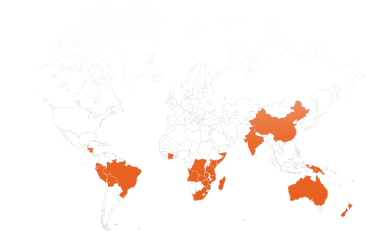Following updates made on April 19th 2021, we have put together a response to the US Department of State (DOS) Travel Advisories to help explain our position on program offerings and provide guidance for our institutional partners and participants.
Department of State changes evaluation to align with US Center for Disease
The recent DOS updates implement changes to the way countries are evaluated on its international travel risk country index to align with the US Center for Disease Control (CDC) messaging. This resulted in the number of countries designated as “Level 4 – Do not travel” being increased from 33 to over 140 countries – 80% of the world.
It has been common practice in international education to take guidance from DOS guidelines when selecting program destinations, and avoid or reconsider travel to level 3 and 4 countries. Prior to the Covid-19 pandemic, a DOS Level 4 designation was rare and typically provided to locations with active war zones, active areas for terrorist operations or locations without in-country US diplomatic support with severe danger levels for all travelers.
It has also been considered best practice that the CDC travel assessments, which focus on health concerns, should be considered alongside DOS travel advisories, which provide a broader risk overview when considering program planning and risk assessment.
Department of State reasoning behind it
As it made these updates, the DOS specifically noted on its website that:
“After this update, approximately 80% of countries will have a Travel Advisory Level of 4: Do Not Travel. This does not necessarily indicate a change to the current health situation in a given country. It reflects an adjustment in our system to give more weight to CDC’s existing assessments.”
It also confirms that factors contributing to the assessments include the travel prohibitions for US citizens. These include quarantines on entry, in-country curfews and restrictions on in-country travel. These are not factors that necessarily increase risks for travelers, and are, instead, an inconvenience or a problem when regulations are not followed. These are all factors that good educational programs are able to work with and factor into a program that ensure participant safety during a program.
Additionally, neither the CDC nor DOS advisories take into account whether a traveler is vaccinated or the percentage of people already vaccinated within the destination country, further reflecting the actual level of risk posed when considering a program at these locations.
What does this mean?
These new advisories have resulted in European countries being given the same risk designation as Syria and North Korea, making it difficult, if not impossible to continue using the DOS travel advisory level as a tool for comparing risk levels across different countries.
Further Input from the Overseas Security Advisory Council (OSAC)
In response to the DOS updates, OSAC also released a statement which included the following:
“This shift … may require many OSAC members to reassess or adjust COVID-19 protocols tied to Department of State Travel Advisories….
…..Like any other indicator, OSAC members should not necessarily view CDC THNs or Department of State Travel Advisories as a singular tripwire, evacuating staff or cutting programs the moment a level increases or restarting operations the moment they decrease. Rather, OSAC encourages private-sector organizations to incorporate the information in this system into their travel security protocols…..alongside other indicators such as those in OSAC Country Security Reports, foreign government security assessments, and/or assessments from travel security providers.”
Other industry bodies, including NAFSA Association for international educators continue to liaise with the DOS on ways they might improve their information for our field. You can read their letter and the DOS response to that letter here.
It is understandable that the US government is seeking to minimize the number of people traveling abroad and potentially putting a strain on the US consular services overseas at a difficult time, bringing back mutated strains of the virus that may exist in some locations or becoming subject to Covid-19 restrictions during their travels. Conversely, these are all factors that good, highly supported, study-abroad programs with longer-term duration and the ability to implement restrictive activities are able to mitigate in the way that tourism and business travel might find more difficult, if not impossible.
What is Kaya’s response to it all?
With all these factors in mind, Kaya has decided to continue to offer programs in locations where we have conducted extensive risk assessments and concluded that we are able to provide safe and supported programs for both our participants and our communities. As we reopen in these locations, we are putting in place processes and procedures, within our most controllable environments, where we can protect our participants, staff and the local communities from exposure to COVID-19, where we have health facilities that can continue to provide health services and where participants can still take part in meaningful development work.
We will continue to monitor both CDC and DOS advisories, alongside those of the UK and European foreign offices, the WHO and input from our in-country staff. Only where we believe we can continue to fulfill our mission and responsibilities to both our participants and host communities will we move forward with delivering our programs.
For more info on our Kaya Response to COVID-19 and projects reopening, click here.
Thank you for your continued work to remain responsible travelers, and for putting your trust in Kaya. We welcome all feedback and input.
Heilwig Jones – Director
Hope you found this blog interesting. To hear more about the projects that we offer please connect with one of our advisors using the chat now button, or feel free to request a brochure using the button opposite.


Recent comments